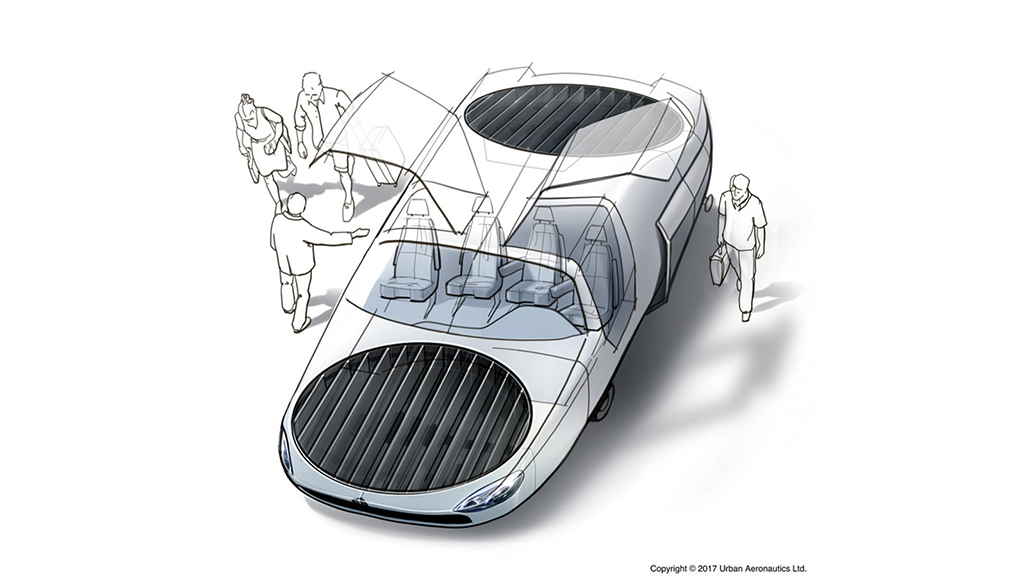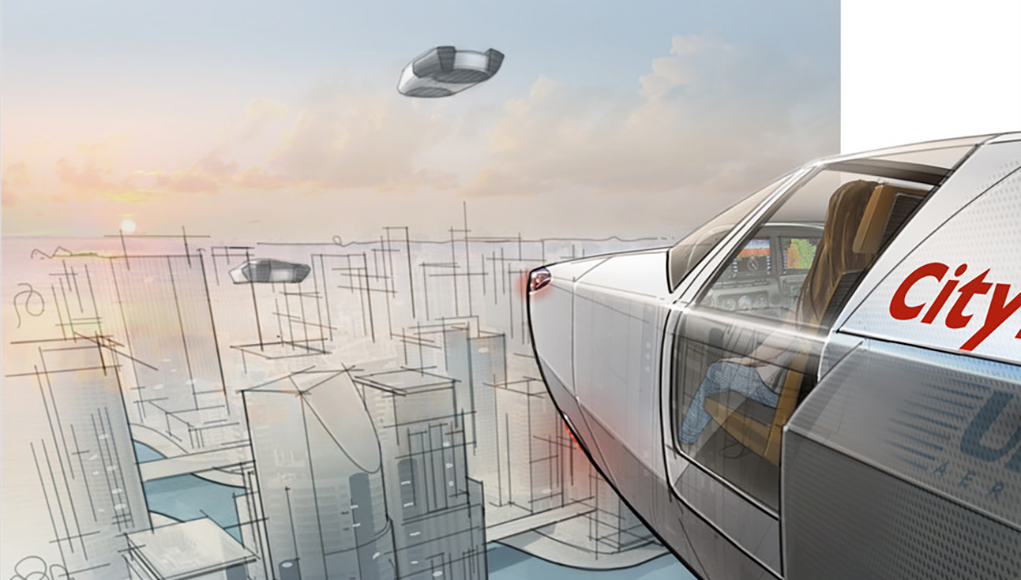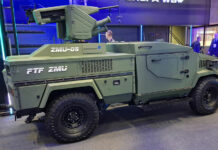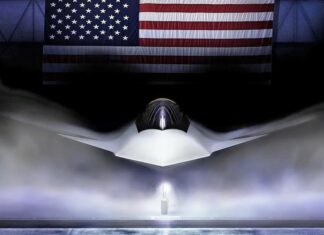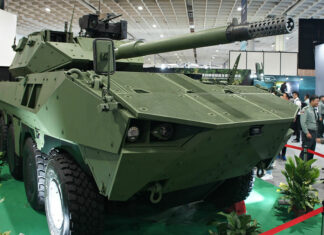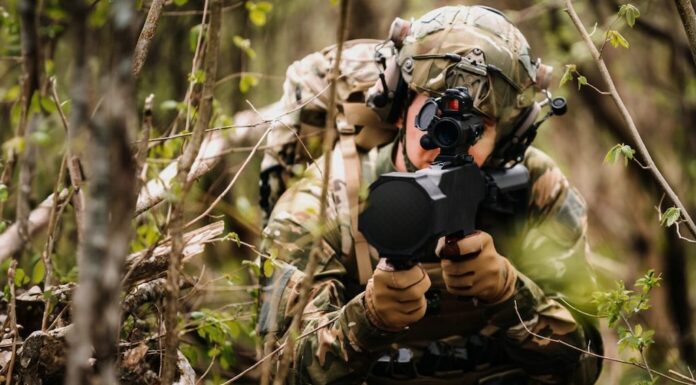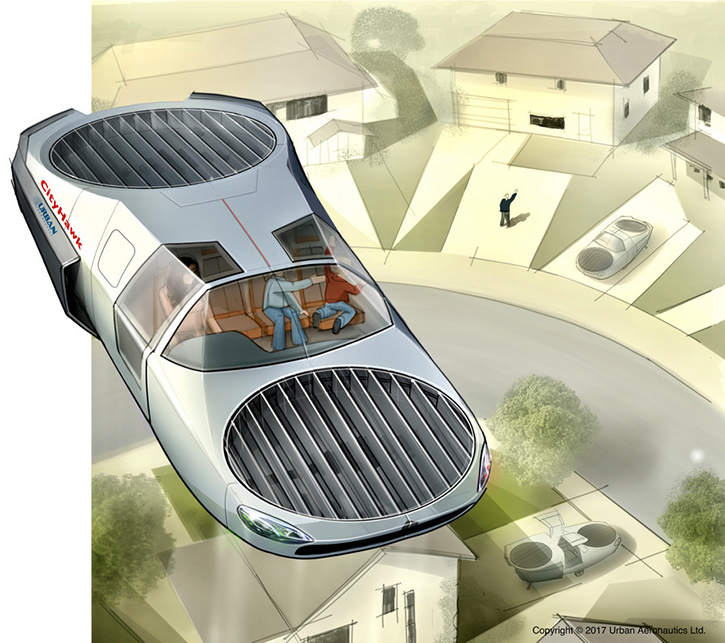
Metro Skyways Ltd. (MSL), a subsidiary of Israel’s Urban Aeronautics company is set to embark on a five-year development of the CityHawk – an optionally-autonomous flying car. Urban Aeronautics’ CEO Rafi Yoeli told Defense-Update his company is seeking to fund the current flight demonstrator phase, or the entire five-year program, that will result in the completion design, development, and testing of a VTOL aircraft built exclusively for civilian use in the personal aerial vehicle, Air-Taxi and Air-Rescue sectors.
The CityHawk design will fully comply with civil aviation safety certification standards for land and air mobility. MSL plans to complete the development in five years. The vehicle will initially be piloted and powered by jet fuel, but for the long run, it is designed from the start for robotic operation and propulsion by liquid hydrogen. The vehicle will be able to carry 700 bars compressed hydrogen, once such options become commercially feasible. One of the safety features on board will be a rocket-deployed parachute, to bring the vehicle down safely should an in-flight critical event occurs.
The four-passenger, Vertical-Takeoff, and Landing (VTOL), the flying vehicle will be based on Urban Aeronautics’ internal rotor, Fancraft technology that has been proven in the Cormorant unmanned aerial vehicle that has already logged more than 200 flight hours in testing.
Subscribe to read the full report
